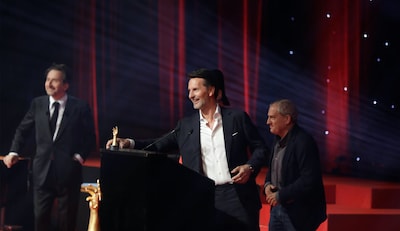And the winner of the GPHG awards 2022 is…

The Grand Prix d’Horlogerie de Genève results are in, and there are some surprises.
What value an award? Bradford-born screenwriter Dean Cavanagh is credited with the line that “our minds are big enough to contemplate the cosmos but small enough to care about who wins an Oscar.”
Not the most complimentary view, but not one we should swallow whole with the after-party champagne, either. Awards do matter, particularly the big ones, and even though it’s clearly simplistic to say as much, we wouldn’t have them if they didn’t.
This is because awards at their best are a barometer that helps us choose what to buy and consume (in theory – hearty congratulations to anyone who stayed awake through Power of the Dog). Award winners love them for exactly that reason, while the overlooked are often quick to ridicule. So far as I can determine, Mr Cavanagh has yet to come close to winning an Oscar.
Almost as glib is the aphorism that some awards are created more equal than others. But this is true, too, and in any circle, whether movies, cars or beauty pageants. Just ask the Belgian Film Critics Association.
In watches, a beauty pageant of sorts, there are more awards dos these days than there are components in a Patek Philippe Grandmaster Chime (1,366 for the watchnerds sitting at the front). But sitting alone at the pinnacle is the Grand Prix d’Horlogerie de Genève, usually abbreviated to “the GPHG”, and often dubbed “The Oscars of Watchmaking”.
The GPHG is indeed the big one. Since the event was first held in 2001, Patek Philippe, Vacheron Constantin and TAG Heuer have scooped the Aiguille d’Or top prize, while countless Watches of Switzerland Group brands have picked up awards from a category list long enough to rival that of Hollywood’s most famous love-in. Each has benefitted from its win.
This year’s GPHG, held in Geneva last week, presented 21 awards, garlanding some of the finest watches made during the past year. I say “some” – as several of the greatest names in watchmaking decline to take part in the event, which, speaking as a member of this year’s Jury, is a sadness.
But among those that did, the standout was the popular independent MB&F, whose breathtaking Legacy Machine Sequential Evo took home the coveted Aiguille d’Or.
MB&F’s winning watch is a work of mechanical art, with two independently controllable chronographs that bring split-second, sequential (lap-time) and cumulative “chess match” modes together under one bulbous dome. Created for MB&F by Stephen McDonnell, one of the great watch movement creators of his generation, it is a genuinely astonishing watch that I’m sure will live long in the memory.
Also welcomed to the stage were Parmigiani, whose dial-moving Tonda sports watch attracted the Ladies’ Watch Prize, one of five it was nominated for; TAG Heuer, which picked up the Icon Prize for a Gulf edition of its evergreen square-cased Monaco; and Tudor, which was recognised in the Diver’s Watch category for its crowd-pleasing Pelagos FXD.
Grand Seiko’s reputation as a rival to the best of Swiss grew further when the Kodo Constant-Force Tourbillon picked up the Chronometry Prize. The Kodo is both Grand Seiko’s first mechanical complication and also the first watch in history to combine a tourbillon and a constant-force mechanism as one unit on a single axis. Esoteric stuff, and certainly worthy of this award.
Bulgari’s Octo Finissimo Ultra was a shoo-in for the Audacity Prize, having not only set the record for the world’s thinnest mechanical watch at a barely-there 1.8mm (although only briefly; it lost the title to Richard Mille after the window for nominations closed), but also because it integrated a QR code into the dial which linked it to an NFT and the metaverse – not for everyone, but undeniably audacious.
As a member of the judging panel, perhaps I’m biased in suggesting the right watches won on the night, but I’m not blind to the anomaly of Audemars Piguet’s Royal Oak walking away empty-handed in its 50th anniversary year. Few watches have shaped the industry as we know it today as singularly as Gerald Genta’s most recognisable design, but as you’d hope of an awards ceremony, the judging process behind the GPHG is democratic and subjective (and secret), which means results we may not agree with, and also that we have to accept.
Besides, there’s always next year. In the meantime, if you haven’t already, watch Belfast. Quite brilliant.